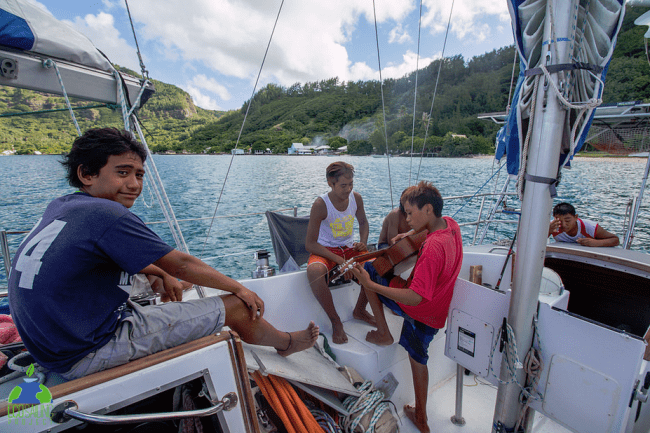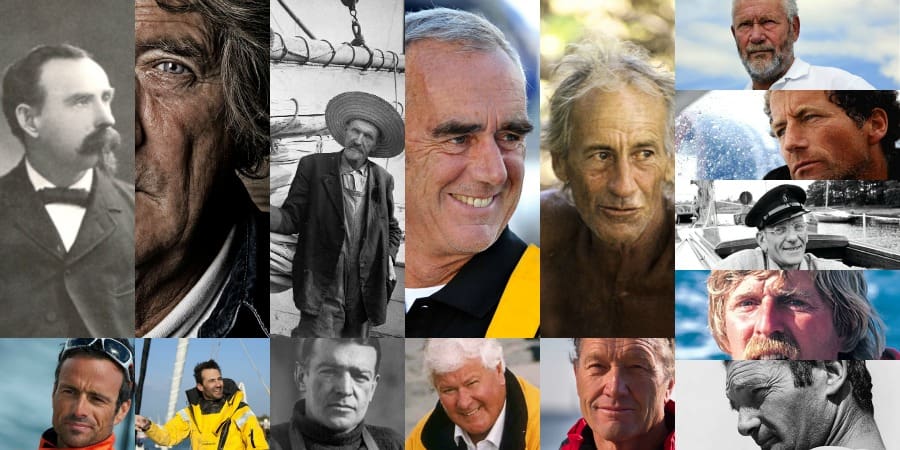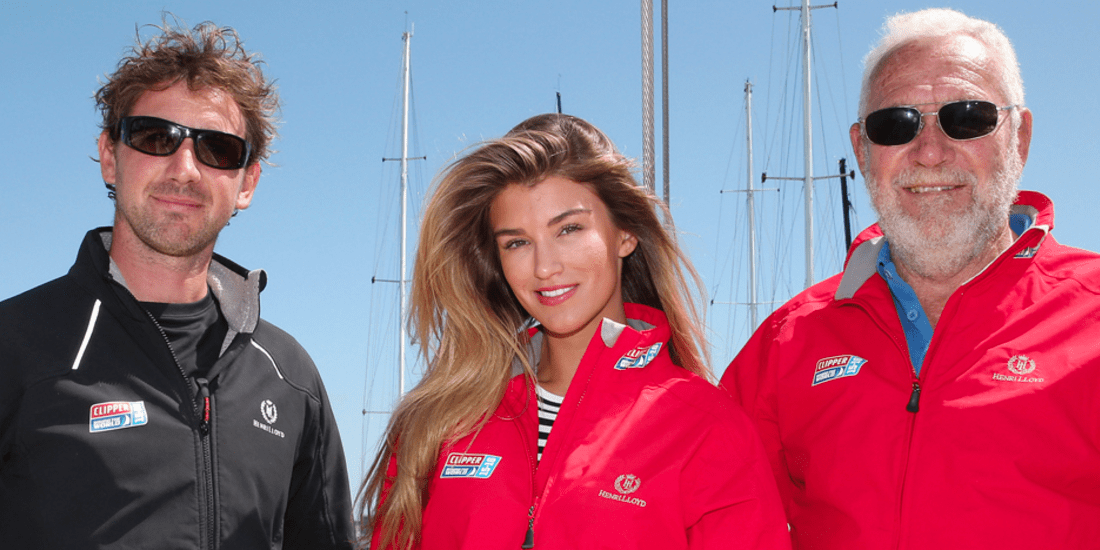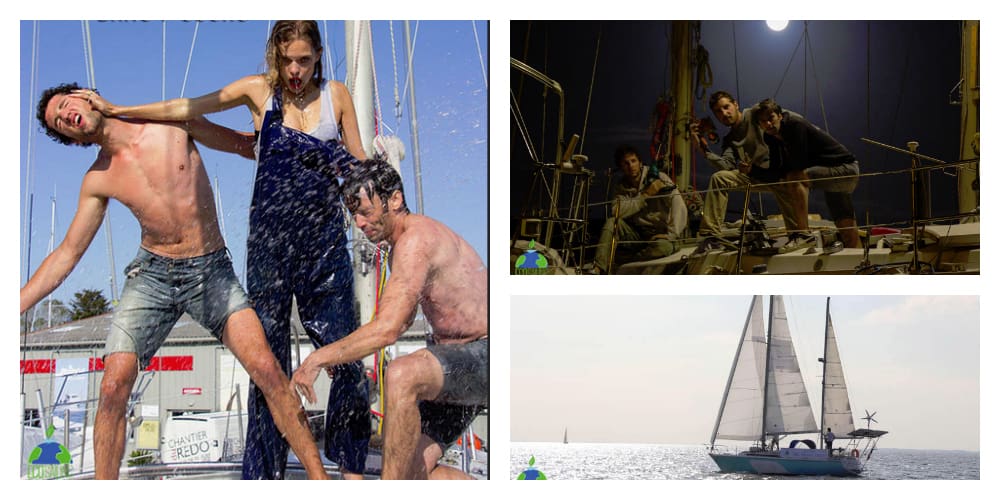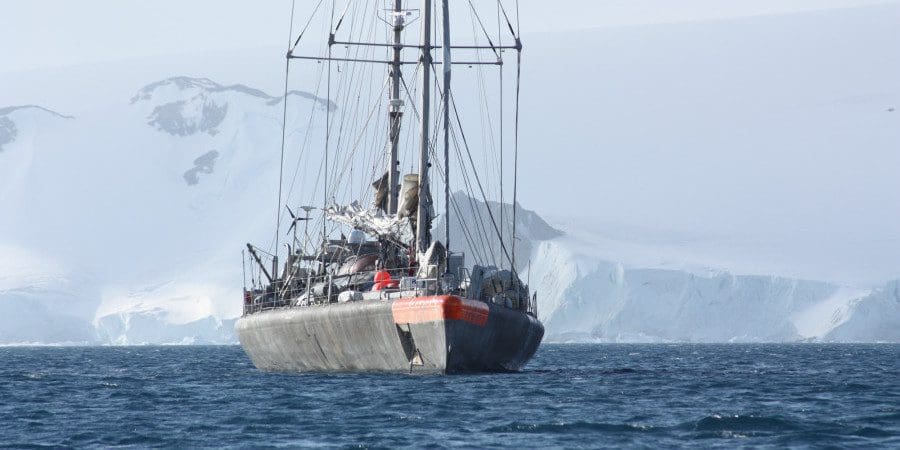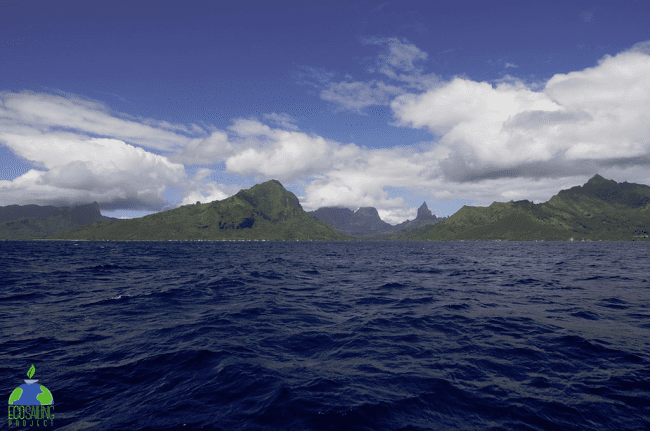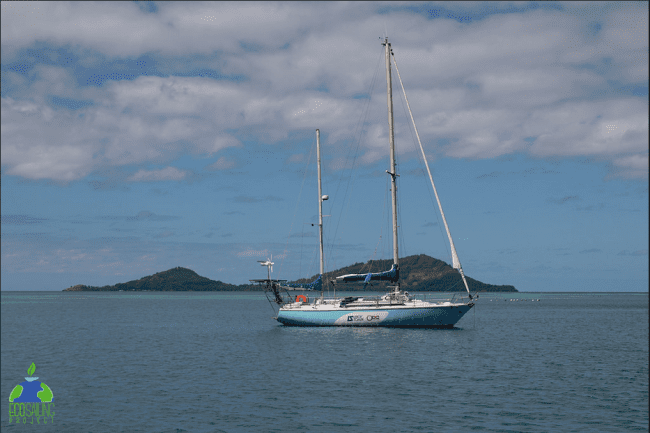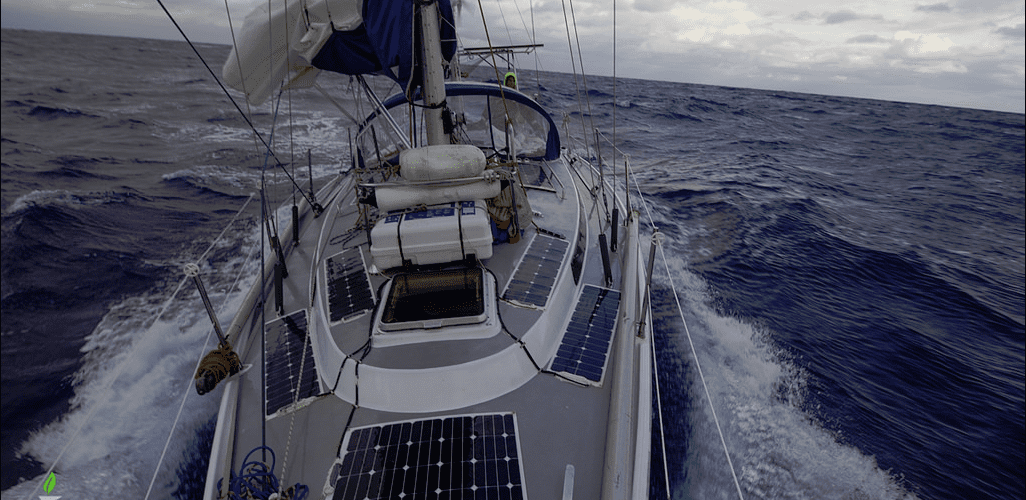
THE ROUND-THE-WORLD TOUR ON A ZERO-EMISSION SAILBOAT! Four friends decided to combine our passions for the sea, the adventure and the ecology. The goal of their project is to prove that a technically complex project around the world is achievable with eco-responsible practices. We met them (and here you find the first part of our inteview!)!
What have been the best moments?
The day of departure was charged with emotion. Most of our friends and families as well as many other people came to say good luck and fair winds. We were so tired after very intense last days, working day and night to be ready (not to mention the endless party the day before the departure!), but it was a magic moment and the result of two years of work.
When looking at all the previous navigations and stops, it’s so hard to say which one we preferred. However we undoubtedly felt in love with Pacific Ocean and its islands! Actually, we met many sailors who came there for a visit and have stayed forever. From the opening of the last lock of the Panama Canal to the Torres Strait, from Galapagos to Papua-New Guinea, we discovered a wonderful nature, amazing Polynesian traditions, and people so welcoming in most of the islands. It was like a new world for us and we lived unique moments there.
And the worst?
Nothing, everything has been perfect from the beginning!
Just kidding… I just said that the day of departure was awesome, but we left without having the time to proceed to some work on the boat and to conduct the necessary technical tests for the electric system. Indeed we quickly had to come back for technical reasons. It took us more than two weeks to bring modifications to our system, nous étions sur les dents, we couldn’t wait to start the trip and we had to face questions of many people wondering if the project was reliable.
Therefore when we finally left France, we were very late in the season and we had to sail with very bad conditions until Canaries. If we were so happy to start the trip, it was really tough: storms, seasickness and vomit, a hard adapting to our new life!
We decided to circumnavigate in only one year and a half, that’s quite fast, as you need to spend half of the time sailing. Thus we had very long crossings; twice we’ve been on the sea for 1 month! It is sometimes nice but you often become a bit crazy! And it becomes very hard to bear others… This is definitely the hardest thing in this project: there are sometimes significant tensions between us, and we had some big shouting matches.
Now you are at Rodrigues: what are the next steps?
Current plan is, after Rodrigues, to go to Reunion, then South Africa. We’ll then cross the Atlantic Ocean (for the second time of the trip), with a short stop in St Helen, to reach Salvador in Brazil where we’ll try to be for mid-February and the carnival. Then, after a month in Brazil, we will finally cross the Atlantic Ocean again to come back to France, with a last stop in Acores on the route.
We have about six months left before being back in France with our zero-emissions sailboat, that’s to say many wonderful moments still waiting for Amasia and us.
Which feeling is giving you this adventure?
The feelings that best describe this journey: freedom and continuous amazement. We know we are lucky guys, we feel we are living a unique experience. It is utopian, but if everyone had the opportunity to make such a trip, people would become more aware of the beauty of nature and the need to preserve it.
Moreover, by leaving on a boat with little material comfort, and seeing various ways of living we’ve understood a lot about consumerism.
In our occidental societies we consume excessively, sometimes thinking that it will make us happier. We actually are much more happier now, leaving far from the negative side of the consumer society. And we’ve been also sad to see in most of our stops a real tendency towards uniformity.
But let’s finish with a positive feeling! We’ve had many visitors on Amasia, very enthusiastic about new possibilities offered by zero-emission sailboat (almost no maintenance work compared to fuelled engines, an odourless, quiet and zero-emission propulsion). If it is still necessary to improve technologies and prices, we are confident in the fact that it is the future of yachting. As a conclusion, we’re glad to see so many people willing to change, and we have the feeling to do something that makes sense.

